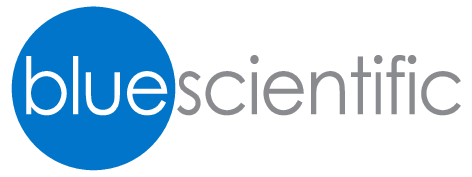Chemical Physics of Electroactive Materials Faraday Discussion, 10-12 April 2017
Visit us at the Chemical Physics of Electroactive Materials Faraday Discussion on 10-12 April 2017 in Cambridge.
Come to our stand and find out more about our portfolio of scientific instruments.
View our instruments
Contact us on +44 (0)1223 422 269 or info@blue-scientific.com
Chemical Physics of Electroactive Materials Faraday Discussion
In the search for new methods of in situ control of the structure and dynamical properties of materials at the micro and nano scales, a favoured technique is varying the applied voltage. This approach is shared by many disciplines, including nano- and micro-fluidics, optofluidics, nanotribology, microrobotics and tunable optical metamaterials.
With regards to portable applications and saving energy, ultra-low voltage control is an area of interest. This can be achieved under electrochemical conditions with electrolytic components and electrical double layer effects at the nanoscale.
The Faraday Discussion will provide a platform for internationally leading researchers in this new interdisciplinary field to come together and share ideas about the physical and chemical principles underlying these phenomena.
Faraday Discussions Format
Faraday Discussions have a special format; research papers by the speakers are distributed to participants prior to the meeting, which is then devoted to discussing the papers. Everyone contributes to the discussion, presenting their own research. The research papers and a record of the discussion are then published in the Faraday Discussions journal.
The RSC’s Faraday Division have been organising Faraday Discussions in developing areas of physical chemistry for over 100 years.
Themes
- Electroactuators: From understanding to micro-robotics and energy conversion
This session will discuss the conversion of applied voltage to mechanical motion and the reverse processes of electrical energy harvesting from mechanical motion. The focus will be on the search for new micro and nano structured electrodes and membrane materials to enhance the electroactuation effect. The discussion will also include micro- and nano-robotics, and electrical energy generators with a view to maximise their efficiency. The aim is to find emerging systems, as well as looking at polymer-electrolyte composite membranes and nanostructured carbon electrodes. - Electrotunable wetting and micro- / nano-fluidics
This session will cover electrical control of fluids at micro and nano scales, eg in opto-fluidics, electroactive desalination and liquid flow capacitors. It will also cover inverse electrowetting, in which mechanical pressure and deformation of liquid droplets generate voltage. - Nanotribology and voltage-controlled friction
This discussion will focus on how to control friction in electroactive systems, such as interfaces with thin lubricant layers consisting of electrolyte solutions or ionic liquids. - Electrovariable nanoplasmonic
Discuss the tuning of surface plasmons in nanostructures, which can electrically control optical properties. These have potential in the creation of switchable mirror-windows, and SERS-based detection of hazardous molecules for security and environmental control. The main focus will be on systems using self-assembled nananoparticle arrays at liquid-liquid or liquid-solid electrochemical interfaces.
Aims
The aim of the event is to develop an understanding of the chemical physics of electroactive materials. In particular teh focus will be on those related to the electroactuation effect, voltage controlled friction, electrotunable wetting and tuning surface plasmons in nanostructures.
Speakers
The draft programme is available here.
- Serge Lemay (Introductory Lecture) – University of Twente, Netherlands
- Mark Rutland (Concluding Remarks) – KTH Royal Institute of Technology, Sweden
- Nina Balke – Oak Ridge National Laboratory, United States
- Martin Bazant – Massachusetts Institute of Technology, United States
- Roland Bennewitz – INM Leibniz Institute for New Materials, Germany
- Lydéric Bocquet – École Normale Supérieure, France
- Hubert Girault – Ecole Polytechnique Fédérale de Lausanne, Switzerland
- Tom Krupenkin – University of Wisconsin, Madison, United States
- Frieder Mugele – University of Twente, Netherlands
- Susan Perkin – University of Oxford, United Kingdom
- Elisabeth Smela – University of Maryland, United States
- George Schatz – Northwestern University, United States
Registration
The date of this event has now passed. If you’d like more information about our instruments in this field, please get in touch:


